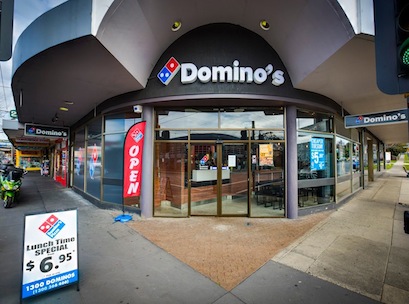US case raises questions about accessibility of online businesses

Domino’s in the US is locked in a legal battle over its obligation to make its website and mobile app accessible to people with disabilities.
The pizza giant was sued three years ago by Guillermo Robles, who is blind, because its website did not support screen reading software, which many blind and visually-impaired people use to access the internet.
Under the Americans with Disabilities Act, businesses in the US are required to make accommodations for those with disabilities, but the law was written in 1990, well before the rise of e-commerce.
Screen reading software and other technology provide a workaround, but they don’t always work. Robles is one of several disability activists turning to the courts to ensure the law is interpreted for modern times.
According to CNBC, the number of lawsuits over website accessibility has exploded recently. More than 2200 such suits were filed in federal courts last year, according to UsableNet, up from 814 in 2017.
A federal appeals court initially sided with Robles’ argument, but the pizza giant is now petitioning the US Supreme Court to review the ruling.
Domino’s and business groups including the National Retail Federation, which have filed “friend of the court” briefs in support of the pizza giant, say the current ruling should not stand because it would result in inconsistent enforcement, which would be costly for businesses.
“Businesses and non-profits have no interest in discriminating against potential customers or other individuals who happen to have disabilities. But these suits put their targets in an impossible situation. Unless this Court steps in now, defendants must retool their websites to comply with Title III without any guidance on what accessibility in the online environment means for individuals with the variety of disabilities covered by the ADA,” Domino’s said in its petition to the Supreme Court.
The court will decide whether to hear the case later this year.
What does this mean for Australia?
In Australia, equal access to services, including online services and websites, is required by law under the Disability Discrimination Act 1992, where it can be reasonably provided.
In addition, the Convention on the Rights of Persons with Disabilities asserts the right of people with disability to participate in all aspects of society, including the internet and access to information.
The Australian Human Rights Commission told Internet Retailing that some websites, including its own, also abide by the voluntary international standards set out under the Web Content Accessibility Guidelines.
A spokesperson for Domino’s Pizza Enterprises, the company that owns and operates Domino’s in Australia, New Zealand, Belgium, France, The Netherlands, Japan, Germany, Luxembourg and Denmark, provided the following statement to Internet Retailing:
“We work to ensure our all customers can access our website, which can be read using a screen reader.
“We listen to feedback and if a customer raises an accessibility concern we will work to try to address it. In addition, our team members in store are ready to support customers with their ordering requirements, and to ensure they get the best possible deal.”
Comment Manually
You must be logged in to post a comment.

No comments